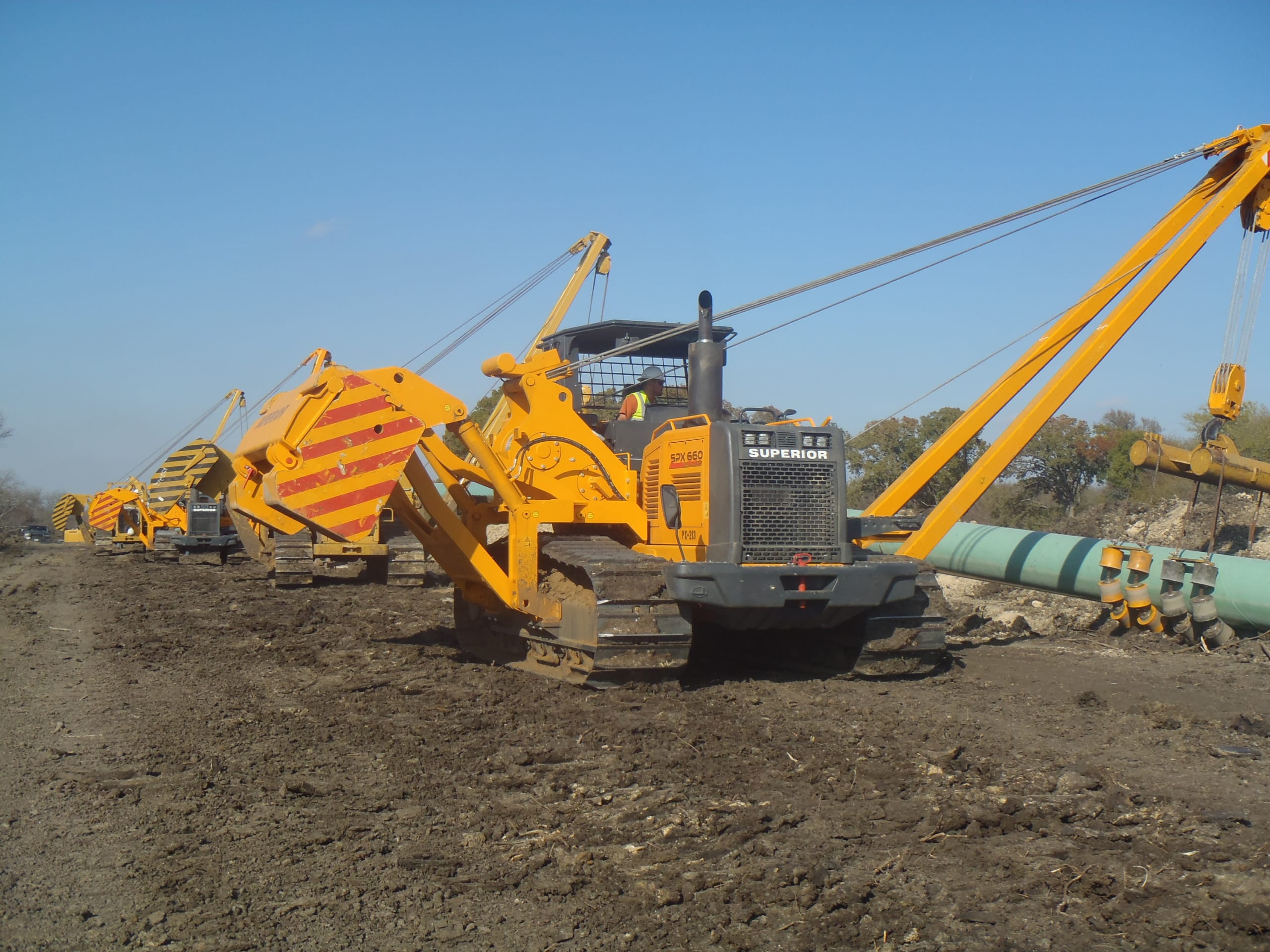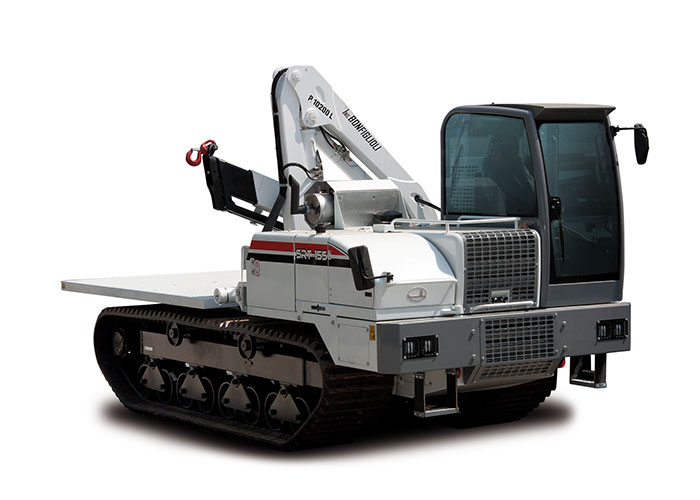Superior Rentals Contact: quick communication guide
A Comprehensive Guide to the Different Sorts Of Oil Field Equipment and Pipeline Equipment Available
The oil and gas market depends heavily on specialized devices for effective extraction and transportation. Numerous kinds of machinery, from drilling rigs to tank, play vital functions in this complex process. Each piece of devices offers unique functions that add to total operational success. Recognizing these elements is essential for anybody associated with the sector. As the sector advances, so too do the innovations that sustain it. What innovations are on the horizon?

Drilling Rigs: The Backbone of Oil Expedition
Drilling rigs function as the vital machinery in the domain name of oil expedition, allowing firms to gain access to hydrocarbon reserves hidden deep below the Earth's surface. These rigs come in numerous kinds, including land rigs, offshore rigs, and mobile devices, each created to run in details atmospheres. Outfitted with innovative modern technology, piercing rigs can penetrate geological developments with accuracy, guaranteeing effective source removal. The architectural honesty and functional abilities of these rigs are essential, as they need to endure severe problems and considerable stress. The option of a drilling rig influences the overall job price and timeline, making it an important consideration for oil companies looking for to enhance their exploration initiatives and optimize efficiency in their operations.
Pumps: Necessary for Fluid Movement
In the oil extraction procedure, the role of pumps is significant, helping with the movement of liquids throughout different phases of production. Pumps are necessary for moving petroleum, water, and various other liquids from below ground reservoirs to the surface area and then via pipes to refineries. They are available in numerous kinds, including centrifugal, favorable variation, and submersible pumps, each serving specific purposes based upon the fluid qualities and operational requirements. Centrifugal pumps are typically utilized for their performance in high-flow applications, while positive displacement pumps master handling viscous fluids. The choice of pump impacts overall effectiveness, operational safety and security, and maintenance prices. Correct choice and maintenance of pumps are vital for maximizing manufacturing and lessening downtime in oil area procedures.
Shutoffs: Managing Circulation and Pressure

Shutoffs play an essential duty in taking care of the flow and stress of liquids within oil fields and pipelines. Different kinds of valves serve distinct applications, each made to satisfy specific features essential for effective procedure - Superior Rentals reviews. Understanding the characteristics and uses of these shutoffs is vital for optimizing system performance and safety and security
Kinds of Valves
Vital elements in oil field procedures, shutoffs play a critical duty in controlling the circulation and stress of liquids within pipes and equipment. Different kinds of shutoffs are used to satisfy the varied demands of oil and gas manufacturing. Typical kinds include gateway shutoffs, which offer a straight-line flow and marginal stress drop; world shutoffs, known for their throttling capacities; and round valves, recognized for their quick on/off control. In addition, check valves protect against backflow, while butterfly shutoffs supply a lightweight service for controling circulation. Each shutoff type is made with details products and configurations to withstand the rough conditions often discovered in oil fields, ensuring integrity and effectiveness in operations. Recognizing these types is critical for effective system monitoring.
Valve Applications and Functions
While different sorts of valves serve distinct objectives, their key applications rotate around regulating flow and pressure within oil and gas systems. Valves such as gate, globe, and ball shutoffs regulate liquid movement, making sure peak performance and safety and security. Entrance shutoffs are commonly utilized for on/off control, offering very little flow resistance. Globe shutoffs, on the other hand, offer exact flow guideline, making them suitable for throttling applications. Round shutoffs are favored for their quick operation and tight sealing capacities. On top of that, pressure safety valve are critical for preventing system overpressure, protecting tools stability. Generally, the proper option and application of valves enhance functional effectiveness, making certain the dependable transport of oil and gas with pipelines and processing facilities.
Compressors: Enhancing Gas Transport
Compressors play a crucial function in the reliable transportation of gas, guaranteeing that it moves efficiently via pipes over long ranges. These gadgets raise the pressure of all-natural gas, allowing it to overcome rubbing and altitude modifications within the pipeline system. Furthermore, compressors facilitate the balancing of supply and demand, fitting changes in intake and manufacturing rates. Various types of compressors are employed in the market, consisting of centrifugal, reciprocating, and rotary screw compressors, each offering distinctive benefits based on the functional requirements. Routine upkeep of these compressors is vital to make the most of effectiveness and reduce downtime, eventually adding to a trustworthy gas transportation network. Their crucial function underscores the importance of compressors in the general oil and gas facilities.
Storage Tanks: Safe and Reliable Fluid Monitoring
Reliable transportation of gas counts on different supporting systems, one of which is the proper management of storage space tanks. These tanks play a crucial duty in safely consisting of liquids, making certain that functional performance is kept while decreasing environmental threats. Built from durable products, they are designed to withstand high pressures and destructive aspects. Properly sized and purposefully located, tank facilitate the smooth flow of natural Superior rentals squeeze tools gas and various other fluids, avoiding traffic jams in supply chains. Routine maintenance and tracking are crucial to spot leaks or architectural issues, promoting safety and compliance with regulatory criteria. Ultimately, the effective administration of storage space tanks is important for the general stability and integrity of the oil and gas industry's fluid handling systems.
Pipeline Solutions: Facilities for Transport
Pipeline systems act as the foundation of the oil and gas industry, facilitating the effective transportation of hydrocarbons over huge ranges. These systems include various elements, including pipes, valves, pumps, and compressors, all meticulously developed to assure seamless circulation. The materials utilized in pipeline construction, commonly steel or high-density polyethylene, are selected for sturdiness and resistance to rust. Pipeline networks can extend throughout land and water, attaching manufacturing websites to refineries and distribution. Additionally, progressed innovation allows real-time surveillance of flow prices and pressure levels, improving operational efficiency. The tactical placement of these pipes minimizes ecological influence while making best use of resource accessibility, therefore playing an essential duty in meeting power demands internationally.
Safety And Security Equipment: Guaranteeing Worker and Environmental Management
The procedure of pipeline systems, while vital for energy transportation, likewise presents substantial safety obstacles for workers and the environment. Safety and security equipment plays a significant role in minimizing these dangers. Personal safety equipment (PPE) such as headgears, handwear covers, and non-slip shoes safeguards workers from physical threats. In addition, gas detection systems keep track of for leakages, ensuring that unsafe substances do not posture a threat to employees or the surrounding community. Emergency situation closure systems are imperative for rapidly halting operations throughout a situation, stopping possible calamities. Spill control materials, consisting of absorbents and barriers, are fundamental for minimizing ecological impact. In general, purchasing all-inclusive safety and security equipment is important for keeping operational integrity and securing both workers and the atmosphere in the oil and gas sector.

Frequently Asked Inquiries
How Do I Choose the Right Oil Field Equipment for My Project?
Choosing the best oil field equipment entails evaluating job requirements, spending plan restraints, and operational demands. Consider variables such as devices dependability, compatibility with existing systems, and the provider's online reputation to guarantee peak performance and security.
What Are the Upkeep Needs for Oil Field Equipment?
Maintenance needs for oil field devices consist of routine inspections, lubrication, and prompt fixings. Operators should likewise comply with maker standards, monitor performance metrics, and assurance compliance with safety and security regulations to enhance durability and efficiency.

Exactly How Can I Make Certain Conformity With Environmental Regulations?
To assure conformity with environmental laws, business must carry out normal audits, apply ideal practices, purchase training, preserve correct documentation, and remain upgraded on regulations (Superior rentals squeeze tools). Partnership with environmental companies can likewise enhance adherence to laws
What Is the Typical Life-span of Pipeline Equipment?
The average life expectancy of pipeline equipment normally ranges from 20 to 50 years, depending on elements such as material high quality, ecological problems, and upkeep practices. Routine inspections can considerably affect long life and functional efficiency.
How Do I Safely Move Oil Field Equipment to Remote Locations?
Transporting oil field equipment to remote areas calls for mindful planning, including route analysis, safeguarding authorizations, making use of proper vehicles, and making certain safety and security methods are complied with. Correct training and interaction among crews are essential for effective transport.